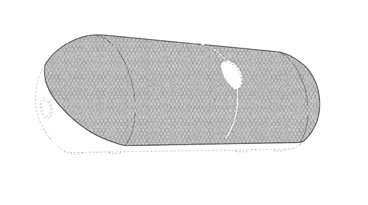Apple seen merging iOS, Mac OS X with custom A6 chip in 2012
Peter Misek with Jefferies & Co. said in a note to investors on Wednesday that he sees such a transition possible with a new MacBook Air running Apple's custom next-generation "A6" processor. The theory, first reported on by Barron's, would have a new iPad, iPhone and MacBook Air all running the A6 in 2012.
"We believe Apple is ready to start sampling the A6 quad-core app processor and will be the first to such multi-device platform capable of PC-like strength," Misek wrote.
For Apple's more traditional and more powerful computers, like the MacBook Pro and Mac desktops, the analyst sees Apple sticking with Intel processors and the current Mac OS X software. But by 2016, he sees all of Apple's Mac devices running on an ARM-based processor like the ones found in the iPhone and iPad.
"Our preliminary view is that Apple can use a 32-bit ARM architecture to address the vast majority of the OS X ecosystem's needs in 2012-13 except for high-end professional devices," he wrote. "When 64-bit ARM is available in 2016, we believe Apple will have a single OS and hardware architecture."
Merging the iOS and Mac OS X platforms would allow users to have content be available and optimized on an even wider range of devices, Misek believes. He sees this strategy being more difficult for Apple to achieve if the company continues to keep its Mac and iOS operating systems separate.
Rumors of an ARM-based MacBook Air are not new. In May, one report claimed that Apple had built a test notebook featuring the same low-power A5 processor found in the iPad 2. The report, which came from Japan, suggested that Apple officials were impressed by the results of the experiment.
That same month, a separate report claimed that Apple plans to ditch Intel processors in its line of Macs and adopt the ARM architecture that powers the iPhone and iPad. That rumor suggested Apple wanted to transition to ARM processors "as soon as possible," likely when 64-bit variations become available at the end of 2012 or by early 2013.
Similarly, Misek sees Apple sticking with Intel processors in its MacBook Pro and Mac desktop lineup for the 64-bit support and compatibility offered by the traditional CPUs.
Apple has boasted that its thin-and-light MacBook Air has design elements taken from its wildly popular iPad tablet, including instant-on functionality. And Apple's latest operating system, Mac OS X 10.7 Lion, adds features first introduced on the iPad and iPhone, including Launchpad, a home screen for applications; a Mac-specific App Store; full-screen applications; and new multi-touch gestures.
 AppleInsider Staff
AppleInsider Staff











 Marko Zivkovic
Marko Zivkovic
 Amber Neely
Amber Neely
 Christine McKee
Christine McKee
 Malcolm Owen
Malcolm Owen
 Mike Wuerthele and Malcolm Owen
Mike Wuerthele and Malcolm Owen

 William Gallagher
William Gallagher







